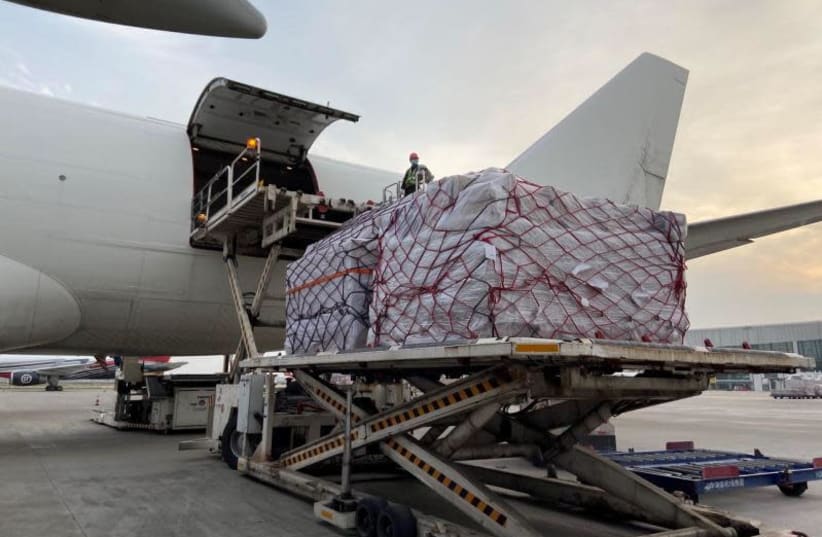The International Air Transport Association (IATA) estimates that in order to provide every person on Earth with a single dose of coronavirus vaccine, 8,000 Boeing 747 freighters would have to be employed, CNN reported, quoting IATA.
IATA's director general and CEO, Alexandre de Juianc said in a statement that "safely delivering COVID-19 vaccines will be the mission of the century for the global air cargo industry."
Currently, 29 vaccines have entered into the Phase III clinical trials, meaning that they are being tested on humans. Once they are cleared for use and serial production starts, it will only be a matter of time until cargo jets will start flying countless sorties to provide relief to the most affected countries.So far, many logistics companies that operate aircraft fleets have relied primarily on Boeing's workhorse, the 747. The latest and largest version of the plane, in comparison to its predecessors, is equipped with new engines and aerodynamic systems.
However, finding the right freighters is not easy since vaccine must be kept at certain temperatures throughout the delivery process. The problem is that not all freighters are can perform the task, as special equipment needs to be installed on board the plane.
And if that is not enough, given the prolonged ban on international flights, many companies have mothballed large parts of their fleets.
Another aspect that is likely to pose a problem is the question of security. Given the sensitivity of the cargo, vaccine supply chains might be susceptible to theft or forceful seizure attempts.
Whatever the solution my eventually be, IATA will face a logistical nightmare while it attempts to orchestrate the largest airlift operation in history.
